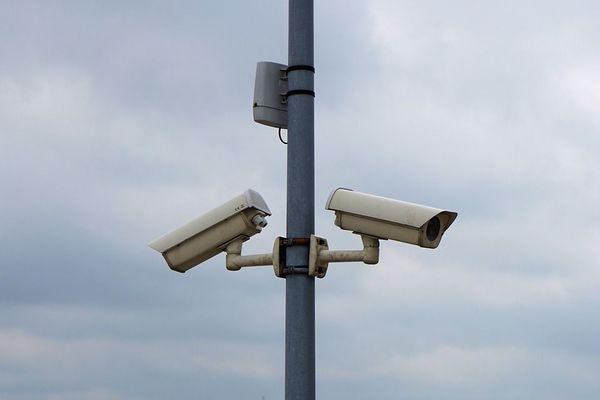OTTAWA — The Queen has made no secret of her affection for Canada, which she has visited 22 times during almost seven decades on the throne
Now Canada is preparing to honour the 95-year-old royal — Canada's head of state and the world’s longest serving monarch — with a series of tributes to mark her 70 years on the throne, including the lighting of a giant beacon in Ottawa.
The beacon is one of 1,500 that will be lit in the capitals of every Commonwealth country and across the U.K. on June 2.
COVID-19 means the Platinum Jubilee celebrations may prove more muted than Queen Elizabeth’s silver jubilee in 1977, which included street parties and concerts, her 2002 Golden Jubilee or her 2012 Diamond Jubilee.
But a blueprint has already been drawn up in London, England, for events throughout the Commonwealth, including Canada.
The anniversary of the Queen's accession to the throne falls on Feb. 6 but most celebrations are being organized for the first week of June because the weather is better. Celebrations for her previous jubilees all took place in the summer.
In Canada, the plans for June 2 include having town criers at 2 p.m. in cities across the country proclaim “oyez oyez” before reciting a specially-scripted proclamation in honour of the Queen’s historic reign, and to announce the lighting of jubilee beacons that evening.
Just before Ottawa’s beacon is lit, buglers will play a bugle call written for the jubilee named "Majesty." Before that, bagpipers from British Columbia to the Maritimes will play a composition by a champion piper entitled "Diu Regnare" — Latin for "long to reign".
The Queen, who was born in 1926, ascended to throne in February 1952, at the age of 27, after the death of her father, King George VI. She has sat on the throne longer than Queen Victoria.
The federal government is preparing “a series of initiatives to mark the Queen’s remarkable 70 years of service”, a spokeswoman for Canadian Heritage Minster Pablo Rodriguez said. These initiatives are expected to include the minting of a commemorative coin and a stamp.
The Heritage ministry has also established a jubilee fund offering $5,000-grants for community-based projects to mark the occasion, such as a parade, planting a commemorative tree, holding a concert, or organizing a festival of lights. Schools, universities, non-profit organizations and tribal councils are among those who can apply for the funding.
In the U.K., community projects being prepared include baking competitions and the planting of Royal Oaks.
Ottawa’s mayor, Jim Watson, said that the Ottawa sign in the capital’s ByWard Market will be lit purple — “the colour of royalty”— to mark the day. The mayor will also prepare a video message to mark the occasion.
An official “how to celebrate” guide has been drawn up in the U.K, with a large part of it directed to the Commonwealth.
Choirs throughout the Commonwealth are encouraged in the guide to rehearse an official song, the score of which is included.
Ottawa’s town crier, Daniel Richer, who is named in the guide’s roll of honour, said he would be making the official Platinum Jubilee proclamation live and on social media.
Richer, Canada’s only bilingual town crier, met the Queen on the Isle of Wight, off the south coast of the U.K., in 1987 at the finals of a town-crying championship — where he said she was startled when 100 town criers clanged their bells simultaneously.
Since then, Richer has defended his title of “world’s most elegant town crier” at town criers’ world championships.
Richer said town criers throughout Canada have already begun learning the official jubilee proclamation, which includes a tribute to the Queen and the lines: “How apt that this should be the platinum anniversary of her accession — platinum, that most noble of metals, more precious even than gold.”
The role of town criers making proclamations on royal occasions dates back to before the age of newspapers. In medieval times, most people in England were illiterate, relying on criers to announce the daily news.
Canadian pipe bands from B.C. to Nova Scotia are also named in a pipers’ roll of honour in the official jubilee guide, including the 78th Highlanders Halifax Citadel Pipe Band, a two-time North American champion.
Piper Roderick Maclean, the Halifax band's manager, said it was “early days” but he and other pipers will be studying the jubilee composition by Pipe Major Stuart Liddell, a champion piper.
“I am sure it is stellar. He is one of the best on the planet,” Maclean said.
The jubilee guide includes the promise of a smart new set of bagpipes for the piper who plays the anthem, Diu Regnare, in “the most unusual location.”
The guide also suggests that British and Commonwealth citizens construct their own beacons, whether they be giant bonfires or gas-fuelled braziers, and light them at 9:45 p.m. on June 2. The guide comes with detailed blueprints on how to construct them and says they could be lit in parks and on clifftops, with a fire extinguisher on hand at all times.
Various prefabricated jubilee beacons are showcased in the guide, including a two-metre high gas-fuelled beacon in the shape of a globe, representing the countries of the Commonwealth, topped by a crown and inscribed with 1952-2022.
“Some of the benefits of this style of beacon are that it can be seen for miles once lit, is suitable for all manner of high and low locations, is easily collapsible and once used can be stored away for later use,” the guide says.
The guide features a recipe for a Platinum Jubilee beacon tart, with ingredients representing all four nations of the United Kingdom: cheddar cheese (England), potatoes (Northern Ireland), smoked salmon (Scotland) and leeks (Wales).
Canada's Conservatives have called on the government to award commemorative medals to mark the occasion. In 2012, the government issued 60,000 Diamond Jubilee medals, including to police officers, fire fighters and Indigenous leaders. Musicians Justin Bieber and Gordon Lightfoot received one of those medals, as did members of the 2012 Olympic team at a ceremony on Parliament Hill.
The Rotary Club and other organizations are preparing their own celebrations, a spokesman for Ottawa’s mayor said. But COVID-19 is likely to put a damper on plans for street parties.
This report by The Canadian Press was first published Jan. 22, 2022.
Marie Woolf, The Canadian Press







